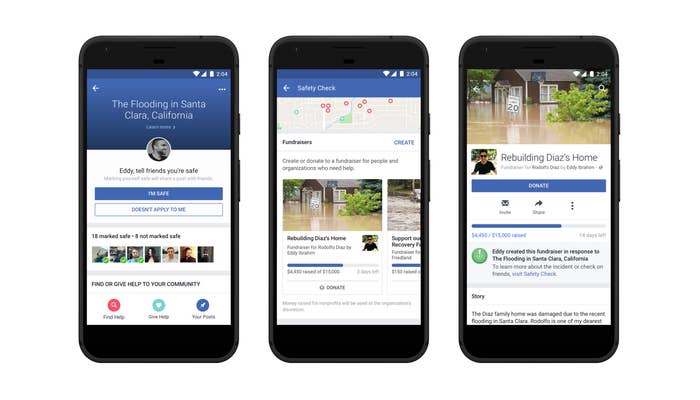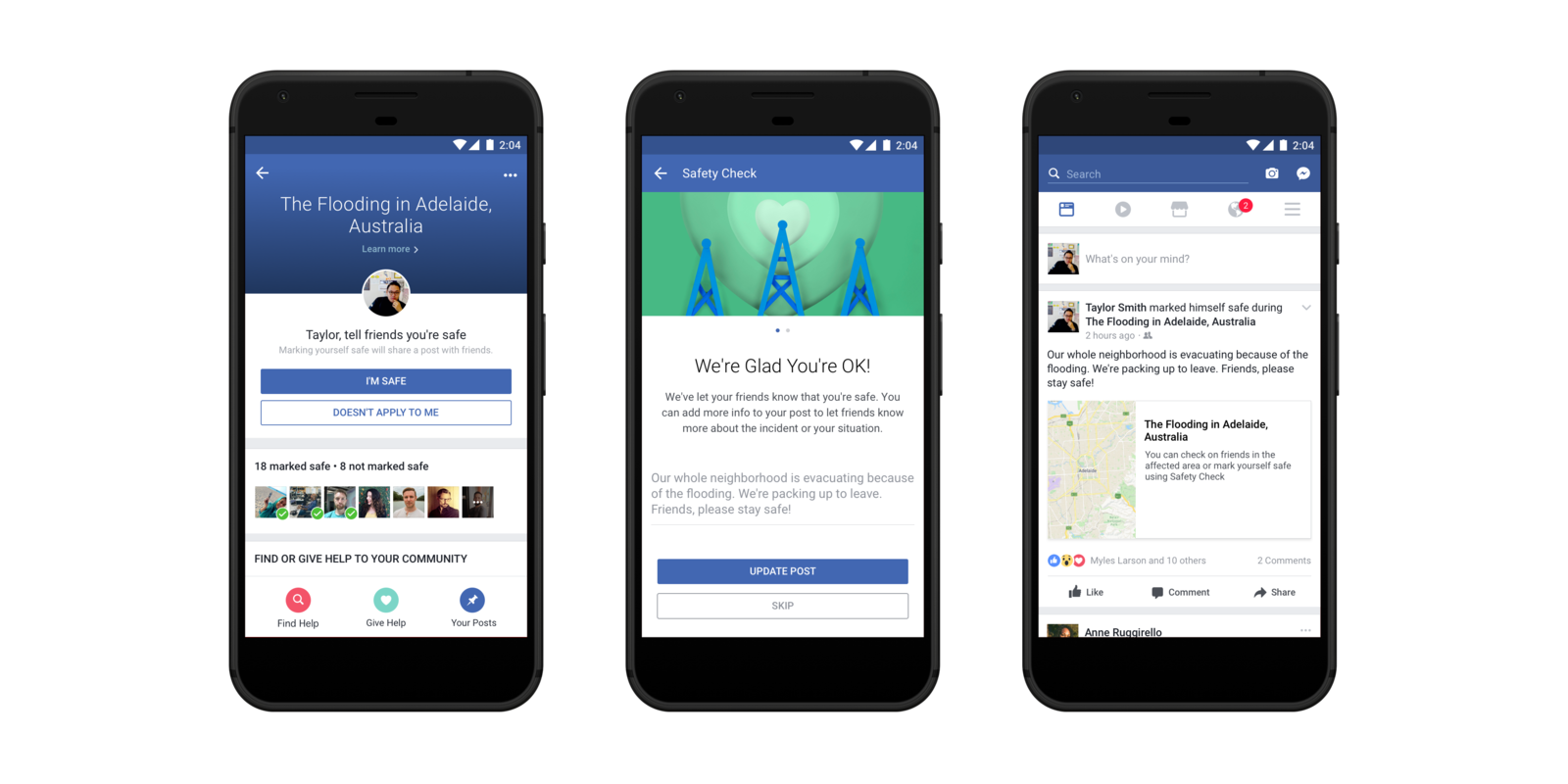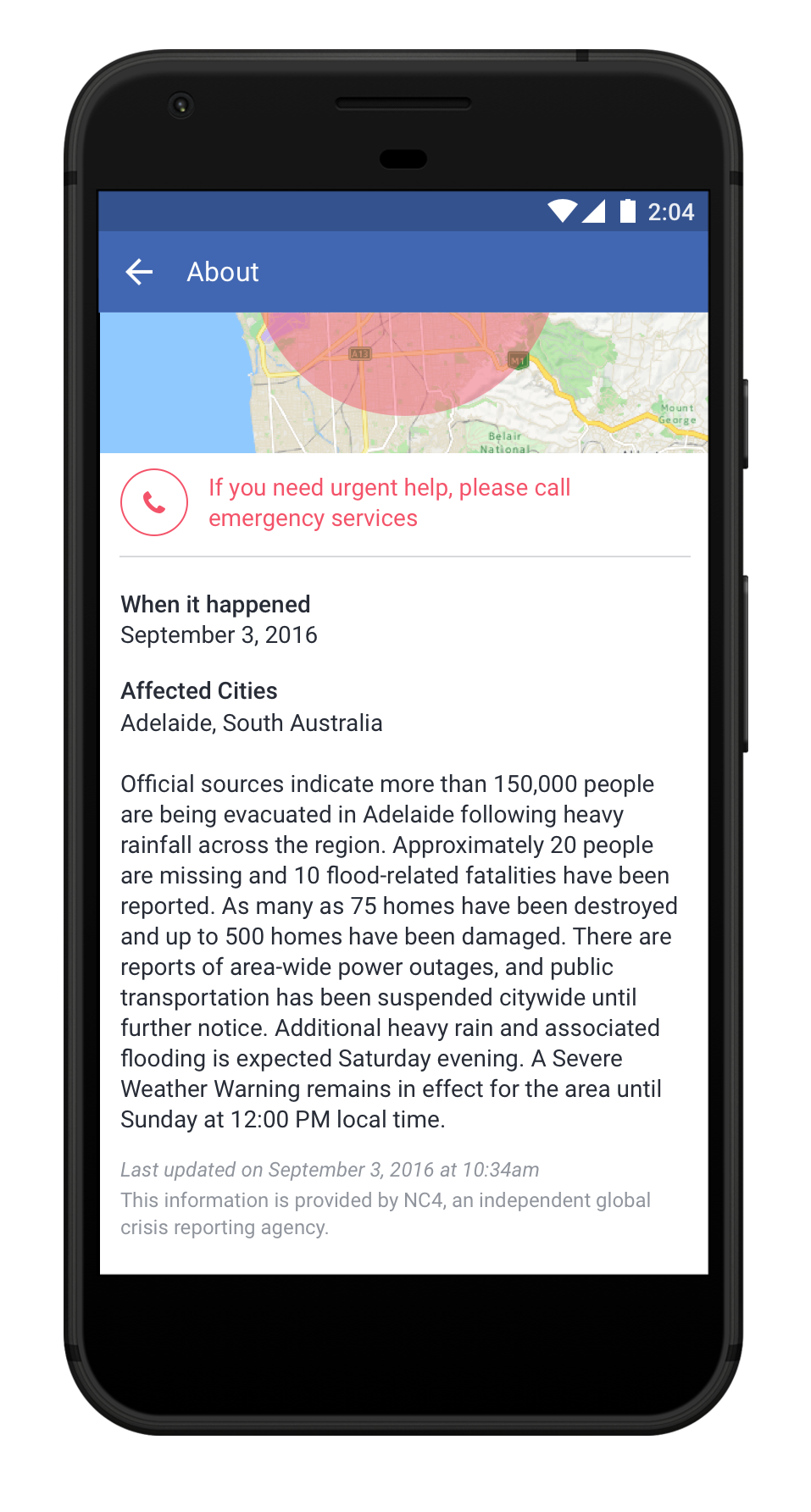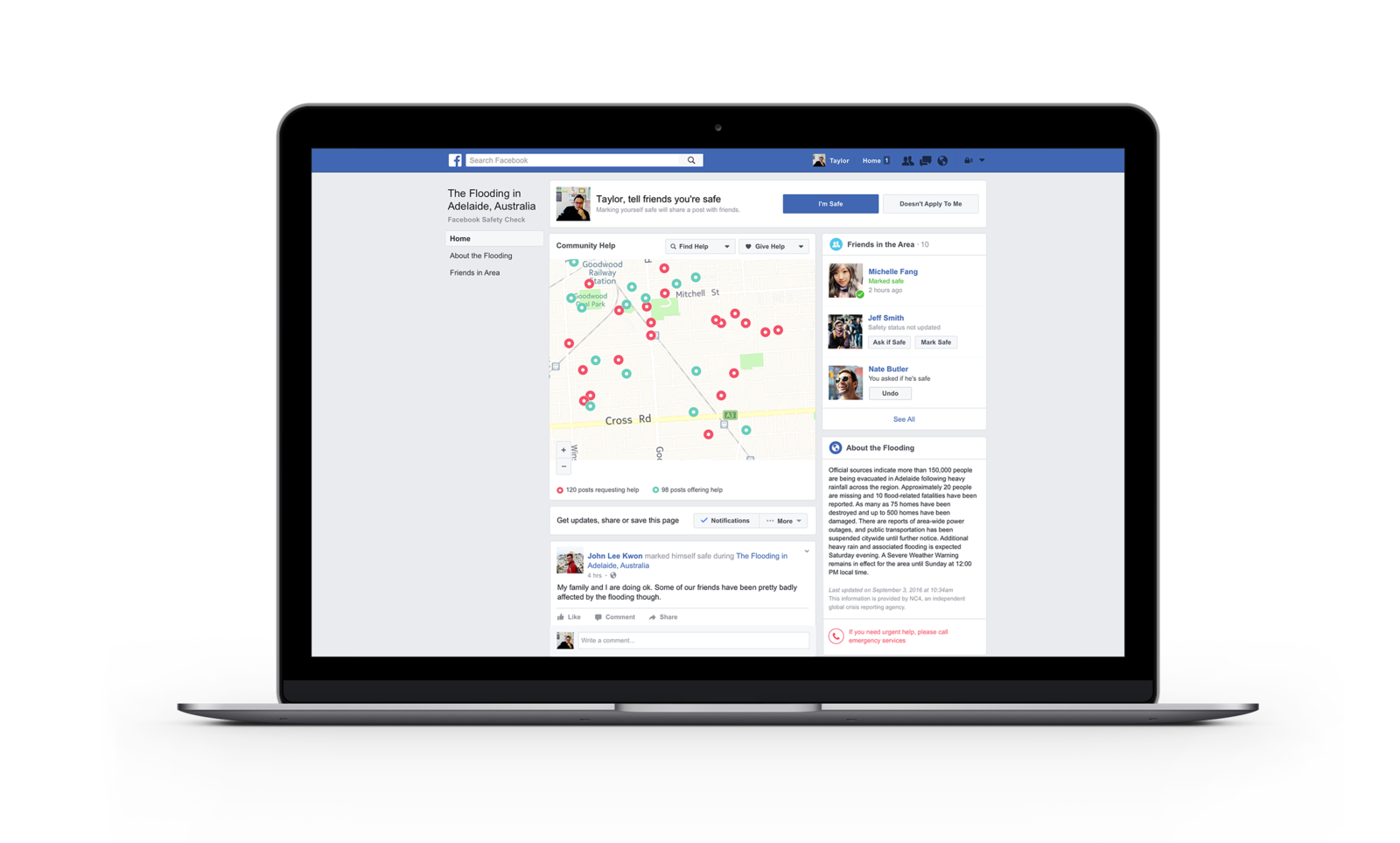Facebook is integrating fundraising into its safety check feature in the US, which means you'll be able to ask all your friends at once for help if you're caught in a natural disaster, or are a victim of an attack.

The feature will roll out "in the coming weeks" in the US, although Facebook declined to specify exactly when.
When you check in to say you're safe from a nearby disaster, you'll have the option to share and donate to a registered nonprofit related to the incident, or create a personal fundraiser to raise money.
To prevent people from abusing the feature, a Facebook spokesperson said that a team of human moderators at Facebook would manually review each fundraiser before it goes live to check it matches the category it was placed in — for example medical expenses, education, crisis relief, a pet's medical expenses, or something else. The spokesperson said there's no way that the safety check feature would be triggered for a disaster that didn't happen.
Facebook activates safety check when the independent crisis reporting agency NC4 notifies the social network of an incident. When asked how the agency classifies disasters and what kind of incident would trigger safety check, a Facebook spokesperson said that was proprietary information.
The feature hasn't always worked seamlessly. In the aftermath of the 2015 Nepal earthquake, a bug in safety check prompted Facebook users in the US and the UK to mark themselves as safe. In December 2016, meanwhile, safety check raised an alarm over an "Explosion in Bangkok, Thailand," which the company seemed to think was a combination of a firecracker thrown at a peaceful protest, and news stories referencing a bombing attack in 2015. A Facebook spokesperson told BuzzFeed News that safety check had been correctly deployed in that instance.
Facebook already allows nonprofits and individuals to create fundraisers, but the feature wasn't previously integrated with safety check. According to Facebook, the feature has been activated 600 times in the past two years, and people around the world have used it to mark themselves as safe more than a billion times. The company pointed to the $450,000 raised via Facebook Live for victims of the recent concert bombing in Manchester, UK, as an example of the fundraiser feature's success.
Facebook takes a 6.9% cut and 30 cents per donation for "payment processing fees, fundraiser vetting, and security and fraud protection" from personal fundraisers. Registered nonprofits pay a slightly smaller, 5% fee, while unregistered nonprofits, which receive their Facebook donations via the Network for Good organization, pay a 5.75% fee.
Facebook product designer Preethi Chethan wrote in a blog post, "I couldn’t be more proud of the empathy and care that goes into building this product." Chethan emphasized the iterative process of designing Facebook's crisis response features, and said the company would be monitoring chatter about it in various qualitative and quantitative ways for feedback.
Another feature being rolled out by Facebook will let you update your friends on what's happening when you use safety check.
Previously, your Facebook friends would just see that you had marked yourself as "safe" during nearby disasters. In the coming weeks you'll be able to add text to check-ins, although Facebook declined to specify exactly when. The feature will roll out globally.
Chethan wrote that a large number of people who check in as safe either comment on their check-in, or create a new status update to describe what is going on where they are. This new feature simplifies that process.
The new feature will allow those who want to say they weren't affected to select "Doesn't Apply to Me" instead of "Not In The Area," as was the case in the past.

Facebook will also start adding information cards to safety check reports.
Sometimes people will see safety check alerts before they even know that a crisis or disaster is happening. To alleviate any confusion, Facebook now plans to include an "about" page for safety alerts.
NC4 will write the information cards, which will be based on information provided by government agencies and on reports from the scene. This feature will also roll out globally in the coming weeks, although the exact date was, again, unspecified.

Facebook will also expand its community help feature, which allows people to offer, or seek, non-monetary help like shelter or first aid.
When it launched in February, Facebook's community help feature was only available for natural disasters or accidents, like a tsunami or a bridge collapse. Now Facebook will enable the community help feature during incidents like terrorist attacks too. It's also rolling out on desktop, and is available globally today.

CORRECTION
Preethi Chethan is a product designer at Facebook. A previous version of this post misstated her name.
